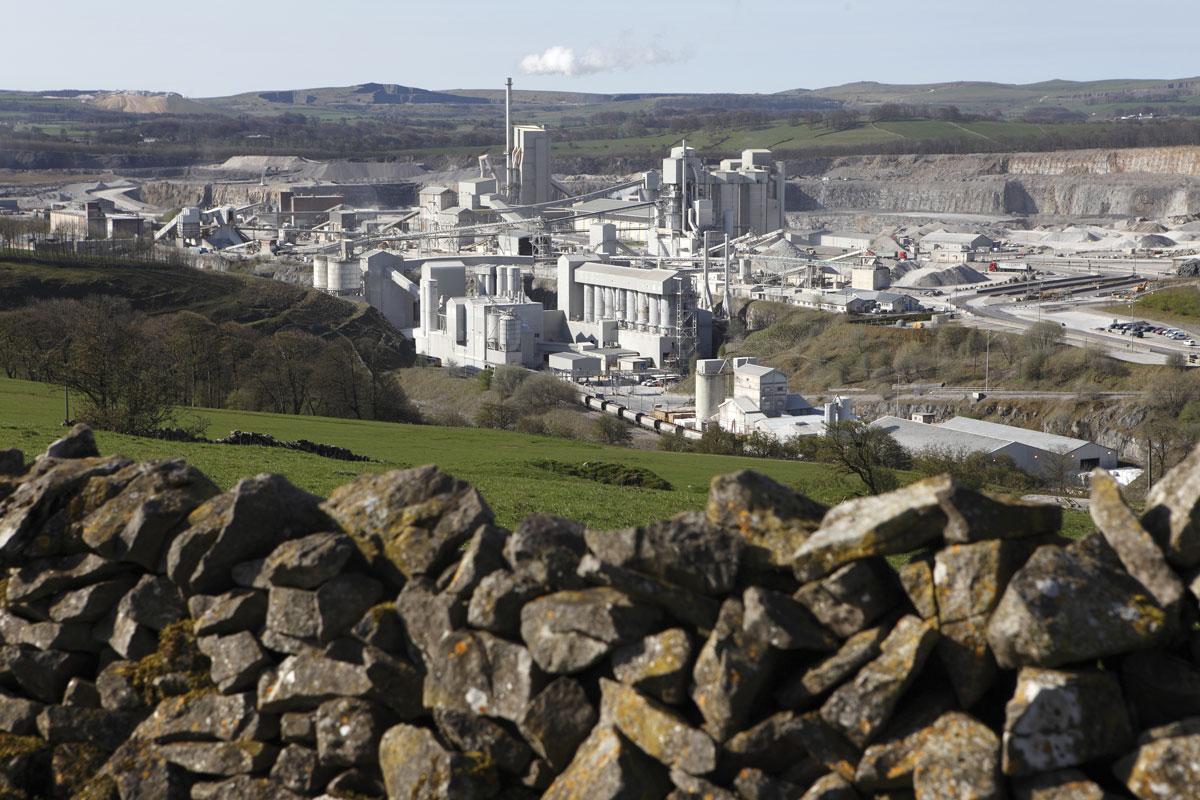Net zero: five policy steps to drive decarbonization

First published in the December 2021 issue of Quarry Management
By Chris Leese, director, MPA UK Concrete
Delivering net zero will require bold leadership from governments and industry around the world. Following the UN COP26 Summit there is an excellent opportunity for the UK Government to put in place new domestic measures to support energy-intensive manufacturing industries, which can help to accelerate decarbonization and create UK net zero jobs.
The UK concrete and cement industry is committed to working in close collaboration with the Government to build a shared understanding and pathway to net zero. Policy, financial, and infrastructure enablers must be co-ordinated to support the sector’s decarbonization and to manage the transition.
MPA UK Concrete has set out a series of recommendations in ‘Decarbonising UK Concrete and Cement’, a proposed package of government domestic policy recommendations to help the UK concrete and cement industry drive further decarbonization and support the UK’s pathway to net zero.
We have made five recommendations to the UK Government which we believe are vital to maintaining our industry’s early action, which has seen it reduce absolute CO2 emissions by 53% since 1990 – decarbonizing faster than the UK economy as a whole.
First, we are calling for new domestic measures to help eliminate the threat of carbon leakage and protect UK manufacturing jobs in our industry. Carbon leakage is created by the UK consuming imported goods that offshore CO2 and move responsibility for emissions abroad, with cement production pushed outside the UK and the loss of manufacturing jobs.
The threat of carbon leakage is real as there is currently a significant shortcoming in UK net zero legislation because emissions targets can be met, or partially met, by buying more imported goods in place of domestic production.
The reality is that the UK is increasingly ‘offshoring’ its environmental responsibility. The Office for National Statistics has highlighted the divergent trend between the UK’s territorial emissions and consumption-based emissions, including the net import of goods.
Linked to this, we are recommending that the UK must adopt new carbon accounting measures to take full responsibility for its emissions.
This is about the UK providing an honest account of its progress to net zero by taking into account the emissions from imports consumed. Imported construction materials such as timber are currently not considered by UK carbon accounting, and this simply moves emission responsibility to other countries. It undermines the UK’s commitment to tackle climate change and the credibility of domestic action in the fight against climate change.
To tackle this, we are recommending that the UK sets a national net zero goal on consumption emissions, in addition to current targets for territorial emissions, to ensure net zero is not achieved or partially met by closing UK manufacturing and importing goods instead.
Next, we need the Government to provide sector-specific funding for UK energy-intensive industries to accelerate net zero innovation.
Of the UK’s energy-intensive industries, only the steel sector currently has earmarked sector-specific funding for decarbonization. There is, therefore, a need to introduce equivalent funding for other hard-to-abate sectors such as cement production, which should be proportionate to the scale and complexity of decarbonization.
The Government’s Industrial Decarbonisation Strategy recognized the importance of decarbonizing dispersed cement plants that are not geographically located in an industrial cluster. Equality of access to transport and storage infrastructure will be key to all sites, whether they are dispersed or operating in a cluster. The aim should be to develop local plans for each key industry to ensure the necessary infrastructure is in place to tackle cross-chain risk for carbon capture and storage investment.
The fourth call for action relates to construction and the importance of whole-life measurement of carbon. There is greater scope for the construction industry to measure embodied carbon over the whole life of the building or asset’s life and assess the carbon impacts of new construction through a whole lifecycle assessment.
Whole-life analysis measures carbon impacts over the lifetime of a building or asset. This includes extraction of raw materials, product miles, and construction, through to maintenance, repair, reuse, and recyclability following demolition.
An exclusive focus on upfront embodied carbon fails to consider carbon over an asset’s lifecycle. It does not give enough consideration to the relationship between embodied carbon and measures to reduce energy use. A holistic environmental approach is also required, to consider impacts of improved social outcomes such as fire protection, occupant safety and comfort, resilience to water escape, and flooding.
The final point is about the role of the Government to use its procurement powers to drive the adoption of new low-carbon technologies to help build back better.
Lower-carbon cements and concretes are already being manufactured and readily available across the UK but there is a need to drive greater industry uptake. The Government and its agencies have an important opportunity to specify these materials for projects and set an example. By using its buying power, the Government can drive the speed of transition and help promote locally produced construction materials and support local economies.
Our industry is continuing to take action. The task of deeper decarbonization gets harder and more complex as we progress. The scale of investment increases and with it the exposure to international competition, requiring government intervention to safeguard UK jobs and UK-generated economic value added. New domestic policies are needed to create and retain green manufacturing jobs in our industry.
For more information on ‘Decarbonising UK Concrete and Cement’, visit: www.thisisukconcrete.co.uk
- Subscribe to Quarry Management, the monthly journal for the mineral products industry, to read articles before they appear on Agg-Net.com








